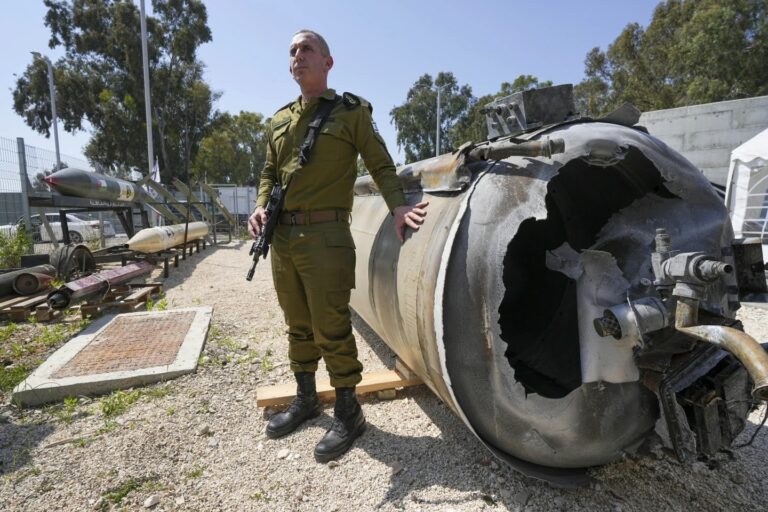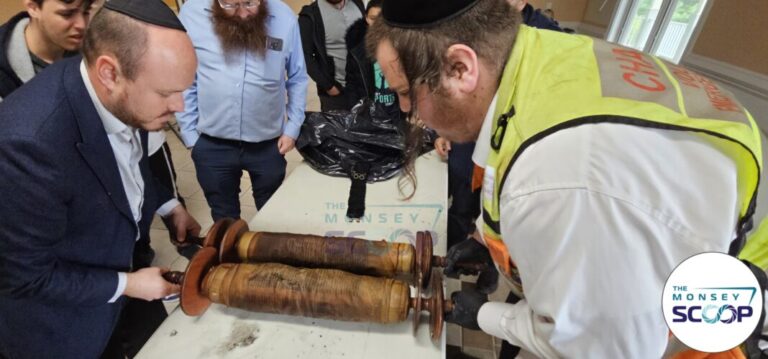 The tragic fire which claimed the life of 3-year-old Aharon Follman Z”L should be a wake up call to everyone about the importance of smoke detectors. Many people do not have working smoke alarms in their bungalows and other summer residences, and YWN is using this opportunity to stress the importance of having a working detector.
The tragic fire which claimed the life of 3-year-old Aharon Follman Z”L should be a wake up call to everyone about the importance of smoke detectors. Many people do not have working smoke alarms in their bungalows and other summer residences, and YWN is using this opportunity to stress the importance of having a working detector.
The cause of Sunday night’s fatal blaze remains under investigation, but Sullivan County Emergency Services Commissioner Richard Martinkovic said the tragic death underscores the need for smoke alarms.
“Especially near sleeping areas because even though the mother was present in the building, the earlier detection of the smoke when it first started would have probably given some additional time to have that child removed from the room, which unfortunately did not happen,” he said.
The FDNY Fire Safety Education unit says 70 percent of fire deaths come from homes without a working smoke alarm.
A home fire death occurs approximately every three hours in the United States, killing 540 children each year, according to data from the National Fire Protection Association.
Ninety-six percent of families in the U.S. have smoke alarms, but 19 percent of the detectors do not work, Johnson said. A smoke alarm provides extra time for people to escape a fire so it crucial that batteries are changed often.
A working smoke alarm can help you and your family escape a deadly home fire. It can also help save the lives of firefighters who would otherwise have to risk their lives by searching a burning home for residents. A working smoke alarm continuously scans the air for smoke, 24 hours a day, seven days a week. It never sleeps.
The following information is via FEMA:
Why should I have a working smoke alarm?
A properly installed and maintained smoke alarm is the first thing in your home that can alert you and your family to a fire 24 hours a day, seven days a week. Home fire sprinklers can also alert you, but are a few seconds slower than smoke alarms. Whether you’re awake or asleep, a working smoke alarm is constantly on alert, scanning the air for fire and smoke.
According to the National Fire Protection Association, almost two-thirds of home fire deaths resulted from fires in properties without working smoke alarms. A working smoke alarm significantly increases your chances of surviving a deadly home fire.
What types of smoke alarms can I buy?
There are many brands of smoke alarms on the market, but they fall under two basic types:ionization and photoelectric.
Ionization and photoelectric smoke alarms detecting different types of fires. Since no one can predict what type of fire might start in their home, the USFA recommends that every home and place where people sleep have:
- Both ionization AND photoelectric smoke alarms. OR
- Dual sensor smoke alarms, which contain both ionization and photoelectric smoke sensors.
There are also alarms for people with hearing loss. These alarms may strobe lights that flash and/or vibrate to alert those who are unable to hear standard smoke alarms when they sound.
What powers a smoke alarm?
Smoke alarms are powered by battery or by your home’s electrical system. If the smoke alarm is powered by battery, it runs on either a disposable 9-volt battery or a non-replaceable 10-year lithium (“long-life”) battery. Alarms that get power from your home’s electrical system, or “hardwired,” usually have a back-up battery that will need to be replaced once a year.
Are smoke alarms expensive?
Smoke alarms are not expensive and are worth the lives they can help save.
Where do I put smoke alarms in my home?
- Put smoke alarms on every floor of your home. Also, in every bedroom and in the hallway outside of each sleeping area.
- Choose smoke alarms that communicate with each other, so that if one alarm sounds they all will.
- Place smoke alarms on the ceiling or high on the wall. Check the manufacturer’s instructions for the best place for your alarm.
- Only qualified electricians should install hardwired smoke alarms.
How do I take care of my smoke alarm?
Is your smoke alarm still working? A smoke alarm with a dead or missing battery is the same as having no smoke alarm at all.
A smoke alarm only works when it is properly installed and regularly maintained. Maintain your smoke alarms according to the manufacturer’s instructions. Below are some general maintenance tips.
Smoke alarm powered by a 9-volt battery
- Test the alarm monthly.
- Replace the batteries at least once every year.
- Replace the entire smoke alarm every 10 years.
Smoke alarm powered by a 10-year lithium (or “long-life”) battery
- Test the alarm monthly.
- Since you cannot (and should not) replace the lithium battery, replace the entire smoke alarm according to the manufacturer’s instructions.
Smoke alarm that is hardwired into your home’s electrical system
- Test the alarm monthly.
- Replace the backup battery at least once every year.
- Replace the entire smoke alarm every 10 years.
What do I do if my smoke alarm sounds while I’m cooking?
Never disable a smoke alarm while cooking! If a smoke alarm sounds while you’re cooking or taking a shower with lots of steam, do not remove the battery. You should:
- Open a window or door and press the “hush” button.
- Wave a towel at the alarm to clear the air.
- Move the entire alarm several feet away from the kitchen or bathroom.
Disabling a smoke alarm or removing the battery can be a deadly mistake.
(Chaim Shapiro – YWN)






One Response
Why should people even think not to have smoke alarms and HEAT detectors in kitchen. Also carbon monoxide should be installed.